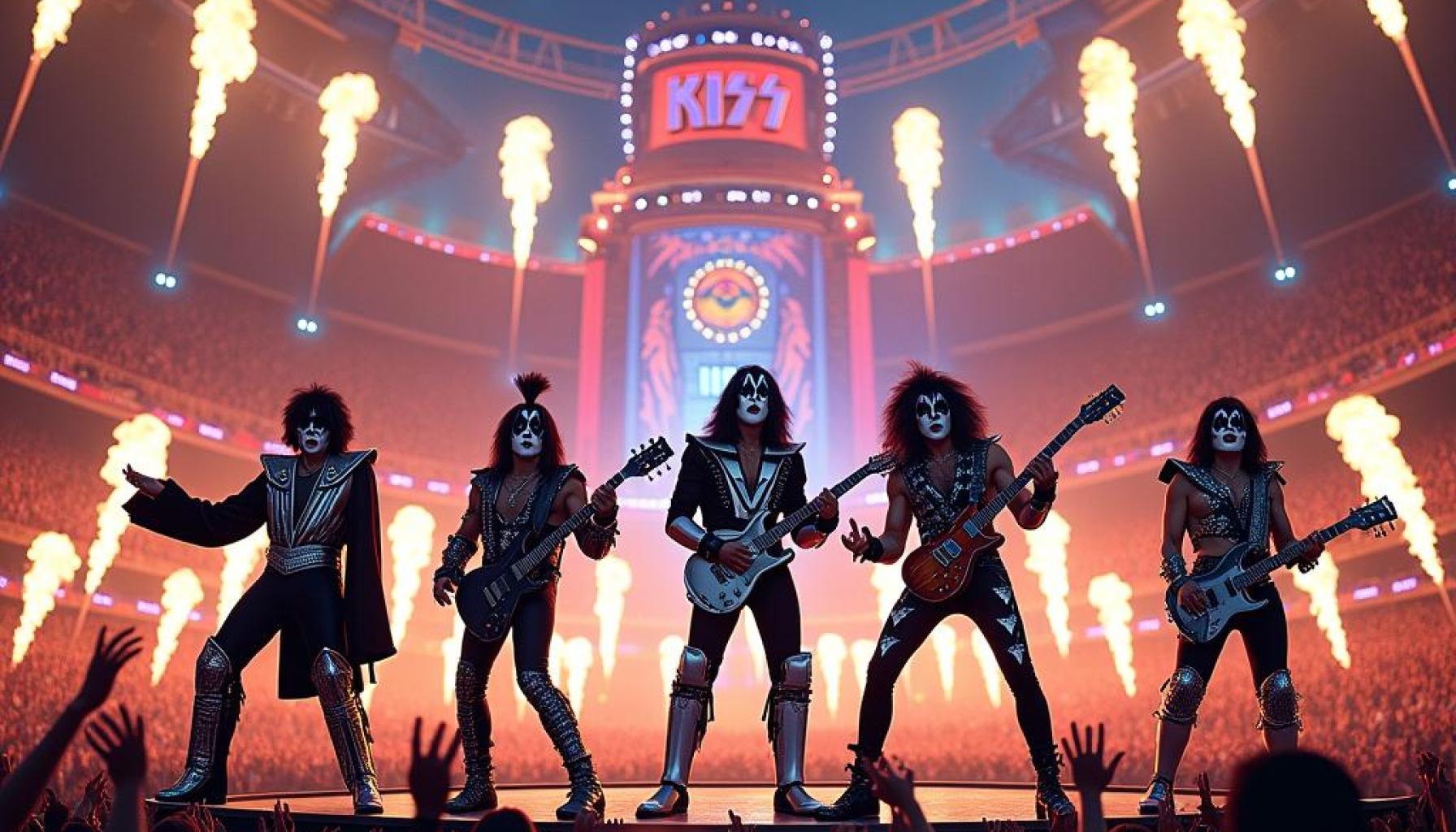
KISS and the Rise of Stadium Rock: A Sonic Phenomenon
Welcome to the dazzling world of rock ‘n’ roll, where pyrotechnics, elaborate costumes, and larger-than-life personas reign supreme! At the forefront of this electrifying movement lies KISS, a band that not only revolutionized the music scene but also set the standard for what would become known as “Stadium Rock.” Buckle up as we take a thrilling ride through the history of KISS and their monumental role in the rise of stadium-sized performances.
The Birth of KISS
In the early 1970s, four musicians from New York City came together to form KISS. Gene Simmons, Paul Stanley, Ace Frehley, and Peter Criss didn’t just want to make music; they aspired to create an all-encompassing experience. With their iconic makeup and flamboyant costumes, KISS was more than a band; they were a brand. Their unique personas — The Demon, The Starchild, The Spaceman, and The Catman — allowed them to capture the imagination of fans and transform the concert-going experience into something extraordinary.
Blazing a Path for Stadium Rock
As the 1970s progressed, KISS began to revolutionize the concept of live performances. With explosive stage shows featuring fire-breathing, blood-spitting, and elaborate visual effects, they took rock concerts to a whole new level. Their 1975 concert at the Summit in Houston, Texas, showcased their extravagant stage design, complete with a 30-foot-high riser for Gene Simmons’ soaring bass solos that would leave audiences in awe.
But it wasn’t just the theatrics that made KISS a household name; it was their ability to connect with fans. They pioneered the idea of “the spectacle” — where music and visual performance coalesce into a memorable event. KISS understood that fans craved an escape, and they delivered it with every note and explosion.
The KISS Army and Fan Engagement
KISS didn’t stop at just creating an unforgettable stage presence; they also built a devoted following known as the “KISS Army.” This grassroots fan club allowed fans to feel like they were part of something bigger than themselves. KISS was one of the first bands to capitalize on fan engagement, offering exclusive merchandise, fan events, and even a chance to meet the band members. This strategy not only solidified their fan base but also set the stage for how future bands would interact with their audiences.
Stadium Rock Takes Flight
The success of KISS laid the groundwork for the stadium rock phenomenon of the late 1970s and 1980s. Bands like Queen, Aerosmith, and AC/DC took notes from KISS’s playbook, amplifying their own shows with pyrotechnics, elaborate sets, and larger-than-life performances. The evolution of sound systems and lighting technology also played a significant role, allowing bands to fill arenas with sound while captivating audiences with stunning visuals.
As stadium rock took off, KISS continued to lead the charge with groundbreaking tours. Their “Alive!” album, released in 1975, became a massive success, proving that live albums could be just as popular as studio recordings. KISS was not just a band; they were a phenomenon that inspired a generation of musicians to dream big and play bigger!
The Legacy of KISS and Stadium Rock
Fast forward to the present day, and KISS is still rocking arenas across the globe. Their ability to adapt and evolve with the times has kept them relevant, proving that the spirit of stadium rock is alive and well. But the impact of KISS extends beyond their music; they’ve left an indelible mark on the culture of rock ‘n’ roll. From the iconic makeup to the extravagant performances, KISS set the blueprint for future rock acts to follow.
Today, when you see artists like Lady Gaga, Beyoncé, and even modern rock bands such as Foo Fighters performing in stadiums, it’s impossible to ignore the influence of KISS. They paved the way for a generation that values spectacle as much as sound, showing that a concert is not merely a performance but an experience to be remembered.
The Final Curtain Call
So, the next time you find yourself at a massive concert, take a moment to appreciate the legacy of KISS and their monumental role in the rise of stadium rock. From their unforgettable shows to their deep connection with fans, KISS didn’t just make music; they created a movement that continues to inspire and entertain audiences around the world. Rock on!
